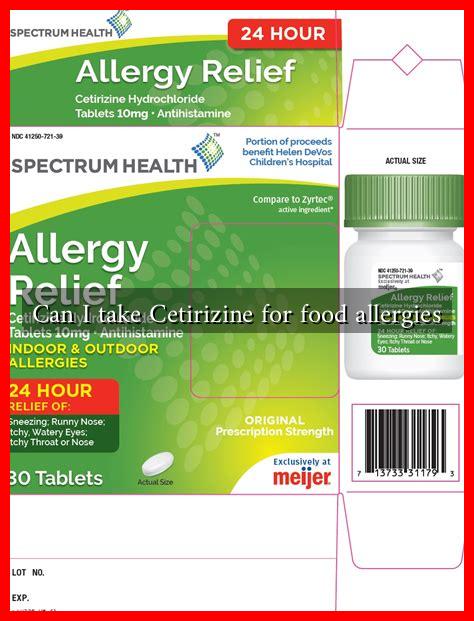-
Table of Contents
Can I Take Cetirizine for Food Allergies?
Food allergies are a growing concern worldwide, affecting millions of individuals. Symptoms can range from mild to severe, and managing these reactions is crucial for those affected. Cetirizine, an antihistamine commonly used to treat allergic reactions, often raises the question: can it be used for food allergies? This article explores the role of Cetirizine in managing food allergies, its effectiveness, and important considerations for those considering its use.
Understanding Food Allergies
Food allergies occur when the immune system mistakenly identifies a harmless food protein as a threat. This triggers an immune response, leading to various symptoms, including:
- Hives or skin rashes
- Swelling of the lips, tongue, or throat
- Gastrointestinal issues such as nausea, vomiting, or diarrhea
- Respiratory problems, including wheezing or difficulty breathing
- Anaphylaxis, a life-threatening reaction that requires immediate medical attention
Common food allergens include peanuts, tree nuts, fish, shellfish, eggs, milk, soy, and wheat. The severity of reactions can vary significantly among individuals, making it essential to understand how to manage these allergies effectively.
What is Cetirizine?
Cetirizine is a second-generation antihistamine that is primarily used to relieve allergy symptoms such as sneezing, runny nose, and itchy or watery eyes. It works by blocking the action of histamine, a substance in the body that causes allergic symptoms. Cetirizine is available over-the-counter and is often recommended for seasonal allergies and allergic rhinitis.
Can Cetirizine Help with Food Allergies?
While Cetirizine can alleviate some symptoms associated with food allergies, it is not a substitute for emergency treatment in severe cases. Here’s how Cetirizine may help:
- Relief from Mild Symptoms: Cetirizine can help manage mild allergic reactions, such as hives or itching, that may occur after consuming a food allergen.
- Not Effective for Anaphylaxis: Cetirizine does not address severe reactions like anaphylaxis, which requires immediate treatment with epinephrine.
- Consultation with Healthcare Providers: It is essential to consult with a healthcare provider before using Cetirizine for food allergies, as they can provide personalized advice based on individual health needs.
Case Studies and Statistics
Research indicates that antihistamines like Cetirizine can be effective in managing mild allergic reactions. A study published in the Journal of Allergy and Clinical Immunology found that antihistamines significantly reduced symptoms in patients with mild allergic reactions. However, the same study emphasized that these medications should not replace epinephrine for severe reactions.
According to the Food Allergy Research & Education (FARE), approximately 32 million Americans have food allergies, with 5.6 million being children. This statistic highlights the importance of understanding how to manage these allergies effectively, including the role of medications like Cetirizine.
Important Considerations
Before considering Cetirizine for food allergies, keep the following points in mind:
- Consult a Doctor: Always consult a healthcare professional for advice tailored to your specific situation.
- Know Your Allergens: Understanding which foods trigger your allergies is crucial for effective management.
- Have an Action Plan: For those with severe allergies, having an emergency action plan that includes the use of epinephrine is vital.
Conclusion
Cetirizine can provide relief for mild symptoms associated with food allergies, but it is not a comprehensive solution, especially for severe reactions. Understanding the limitations of Cetirizine and the importance of consulting healthcare professionals is essential for effective allergy management. Always prioritize safety by having an emergency plan in place and being aware of your allergens. By taking these steps, individuals with food allergies can navigate their condition more effectively and reduce the risk of severe reactions.

